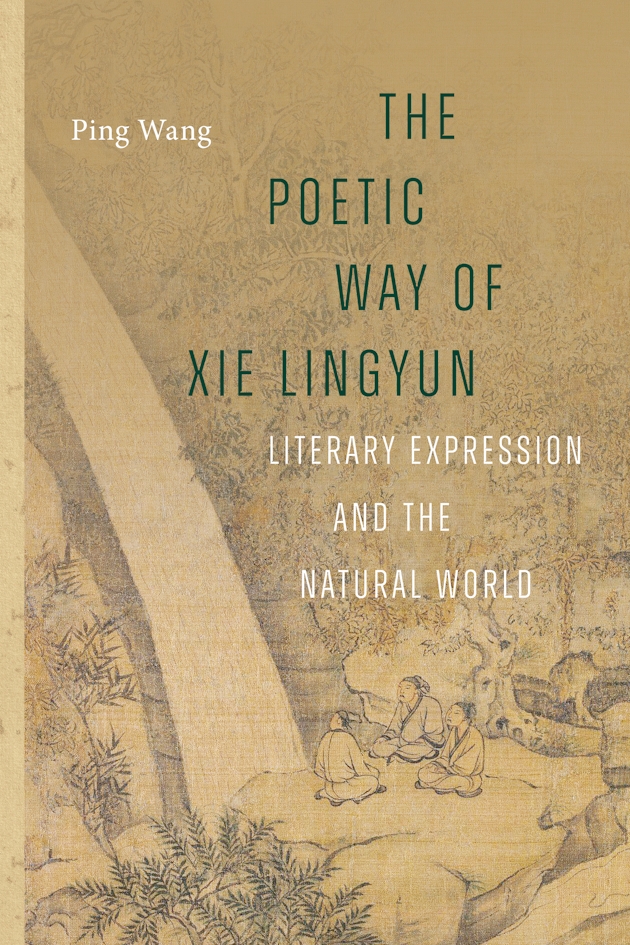Not as well-known as the classic poets of the Tang era, Xie Lingyun (385-433) stands at a turning point in Chinese literature. The long-ruling Han dynasty had a conservative view of culture. Scholars of that dynasty cultivated old fashioned poetic forms and adhered to a tradition-bound Confucian ethic. With the downfall of the Han and the centuries of warfare to restore a single Chinese polity, values, ideas, lineages and even geographic loci were stirred, as it were, in one great swirling pot.
As an aristocrat and a scholar, Xie could easily have adhered to traditions and reproduced Han-inspired five-syllable poems like so many other duly forgotten versifiers. In this book, Professor Ping Wang investigates what made Xie such a revolutionary contributor to the classic genre.
Inquiring minds of the 4th-5th century had wide intellectual horizons to explore.
Inquiring minds of the 4th-5th century had wide intellectual horizons to explore. Buddhism made its way into China, offering a new view about what constituted reality, and mankind’s place in it. Daoism, an older Chinese thought current, enjoyed a renaissance. The writings of Zhuangzi provided a new poetic vocabulary.
Socially, too, life flowed in new patterns. Old families that had served the Jin dynasty for generations found themselves displaced by rougher, tougher military clansmen. Since the Jin dynasty lost the old Central Plains, both soldiers and scholars found themselves exiled south of the Yangtze river, around what is now Nanjing and Hangzhou, at that time an exotic setting with exuberant forests. The Xie family, old aristocrats, enjoyed vast land grants here, but their role under the unsettled southern Jin remained insecure.
In this environment Xie Lingyun stood out even in his youth as an extraordinarily-talented poet and calligrapher. He mastered the classical texts, including the Book of Changes, the Songs of Chu, and the writings of Zhuangzi’s , but he brought a new voice to his poems. His temperamental character—he would have been a rock star in our times—made him enemies at court. Because of his unchallenged literary genius, he assumed he would become a great statesman, but this requires other talents, like forbearance, tact and pragmaticism, which he lacked. Wounded in his pride by the lack of deference shown to his talent and to his lineage, he withdrew from court and wandered around his mountainous and forested domains.
He comforted himself for his political failures by recalling his lofty lineage, which included great poets as well as statesmen. He sought to find his own way, worthy of a scholar-gentleman. He substituted the fickle companionship of the court with a cosmic communion with nature. This verse sums up his prickly attitude to his rivals:
A man of penetrating vision values the self,
His lofty sentiments extend to the heavens and the clouds
Simultaneously, he is disposed to assist the world,
And yet he does not get entangled in dirt or grime.
His renunciation of court life did not protect him from rivals. Eventually his enemies in court arranged to have him executed. He left behind a corpus of poetry that has never since lacked enthusiastic readers.
Xie’s contribution to Chinese poetics is the technique of using dynamic tension between the first and second half of the poetic line
In his exile, Xie composed his main works. Reflecting his wandering life, many of his poems are reveries on the landscapes he visited. For this he is often considered the father of Chinese “山 水“ mountain-water, or landscape poetry. A famous verse reads, “Between dawn and dusk, the climate has changed. Mountains and water are imbued with a clear glow.” His focus, however, is not descriptive, but an exploration of the landscape’s emotional effect, as he continues: “The clear glow may delight the traveler, who dallies and forgets to return.”
The alternations in the landscape, mountain and water, dawn and dusk, gibbons and bird, remind Xie, notes Wang, “that nothing is static. Everything is transformed.” The challenge for the individual is to find his rightful place within this ever changing world. The ups and downs of a court career are nothing compared to the changes that nature reveals, but in nature Xie finds the path to serenity.
On the other hand, it is a lonely path. Xie frequently laments his lack of companions: “it is only regrettable that I have no one to share [the moment].” Wang points out that Xie’s excursions involved dozens of attendants, but the poet longed for kindred souls, some of whom were the great poets of his youth, or even earlier generations, and thus unattainable.
While translation generally requires more words and delivers less allusiveness than the Chinese, the reader still grasps the music behind the phrases.
Xie’s contribution to Chinese poetics is the technique of using dynamic tension between the first and second half of the poetic line, with especially powerful images, often embedded in rare characters (in the example below, names for exotic shell-fish), in each half of the line:
Raising the sail // I set out to collect rock blossoms.
Lifting the curtains // we will gather the ocean moons.
Ping Wang provides translations (as well as the original text in traditional characters) which bring Xie’s language to life for the English reader. While translation generally requires more words and delivers less allusiveness than the Chinese, the reader still grasps the music behind the phrases. The author’s deep reading of the text, comparing it to both earlier sources and later admirers of Xie’s work makes the reader appreciate the poet’s contribution to classical Chinese literature.
This highly readable and comprehensive book will provide readers an enjoyable and instructive expedition into the rich and exuberant landscape of classical Chinese literature.

